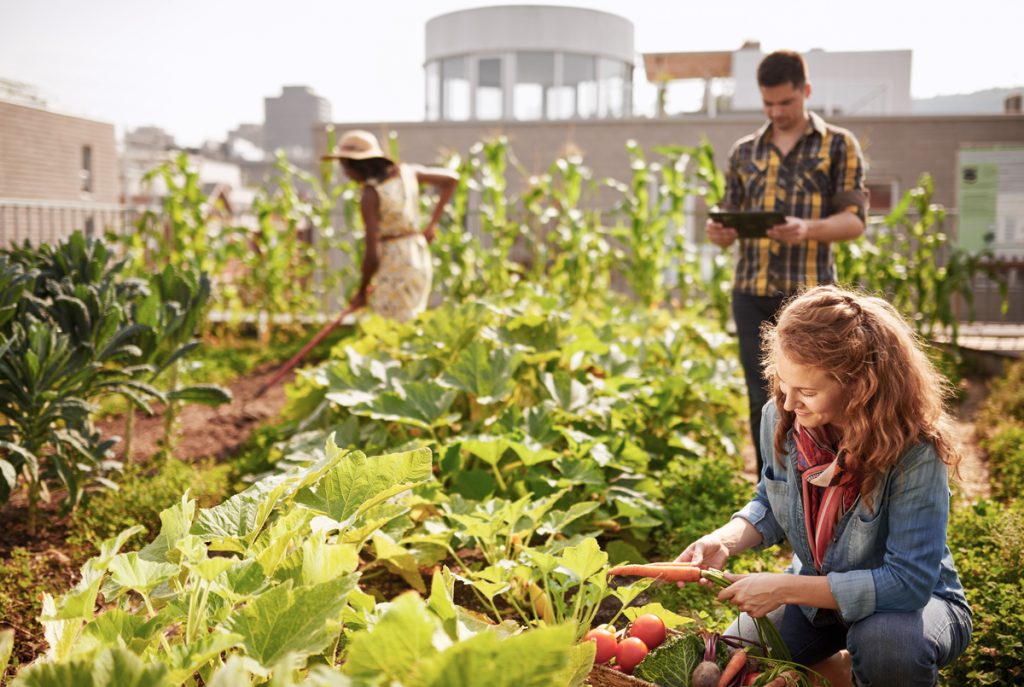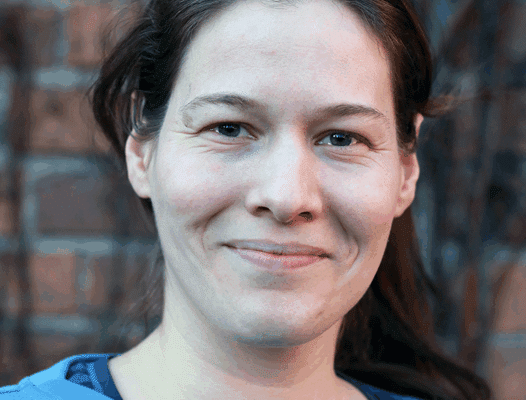- Research
Community gardens have taken root in Montreal and elsewhere. But what does this movement represent for citizens?

A symbol of sustainable development or a radical act? The development of city gardens is viewed in different ways. Nathan McClintock, a professor at the Institut national de la recherche scientifique (INRS), is interested in the range of perceptions people have about urban agriculture. More specifically, his research focuses on governance, as well as on citizens’ real involvement in urban agriculture.
“Urban agriculture is often seen as citizens appropriating public space, so we can talk about ‘radical democracy.’ But, in a context where city officials support this movement, what is it really?”, the researcher asks.
Professor McClintock used Montreal as a case study to shed light on urban agriculture’s contribution to urban economic development. Urban agriculture improves a city’s image according to his article published in December 2020 in Environment and Planning C: Politics and Space.
“The image of gardens in the heart of downtown is a symbol of sustainable development and greening policies. It’s part of the city’s branding” and it contributes in a way to the city’s economic development.”
Nathan McClintock, specialist in urban agriculture and food systems
According to Professor McClintock, the radical aspect of urban agriculture is located more in the development of a political consciousness among those who participate in these citizens’ projects, than in broader political or economic transformations.
Participation and rule-making
Enthusiasm for community gardens, in Quebec as elsewhere, has led to an increase in its “formal governance”. Among other things, cities have established new rules to regulate urban agriculture. These rules can support citizens, but they can also act as obstacles.
“City officials base regulations on a particular definition of urban agriculture, often one grounded in sustainable development. Many citizens identify with this definition, while others, who may garden for cultural or recreational reasons, may be sidelined or feel that these rules do not concern them.”
Professor McClintock recently published an article in the International Journal of Urban and Regional Research that addresses questions of governance and the manner in which citizens interpret regulations every day for their own reasons. Which policies do citizens accept? Which do they resist? Dr. McClintock explores citizens’ relationship with the latter.
His current research revolves around the creation of greenhouses in disadvantaged neighborhoods. With Professor Jasmin Raymond, an expert in geothermics and thermal hydrogeology, Professor McClintock will undertake an interdisciplinary evaluation of greenhouses’ potential for socio-technological integration in disadvantaged urban areas, so as to allow for year-round food production and to better prepare these neighborhoods for the supply challenges brought on by a pandemic.
Professor Sophie Van Neste, a specialist in the environment, the climate, and citizen political action, will work with Professor McClintock on questions related to participation and governance. “We want to determine which groups feel included or excluded in these projects,” Dr. McClintock explains. “By identifying the issues behind their motivations and participation, we can help develop projects in the most inclusive way possible, led and managed by the community.”
Professors Louis-César Pasquier and Geneviève Bordeleau are also participating in the project. Éric Duchemin, from the Urban Agriculture Lab (AU/LAB), and Danielle Monfet and Didier Haillot, both from the School for Advanced Technology (ÉTS), are partners on the project.
About the studies
“Reclaiming the city one plot at a time? DIY garden projects, radical democracy, and the politics of spatial appropriation,” by Claire E. Bach and Nathan McClintock, was published in Environment and Planning C: Politics and Space in December 2020. Research was financed by Quebec’s Ministry of International Relations and la Francophonie and by Portland State University’s Institute for Sustainable Solutions.
“GOVERNING URBAN AGRICULTURE: Formalization, Resistance and Re‐visioning in Two ‘Green’ Cities,” by Nathan McClintock, Christiana Miewald, and Eugene McCann, was published in the International Journal of Urban and Regional Research. The project received funding from the National Science Foundation (NSF).



